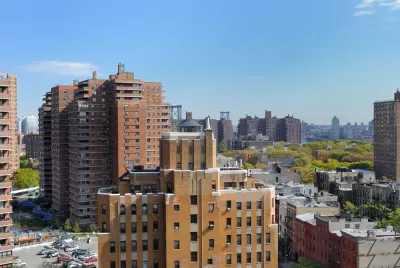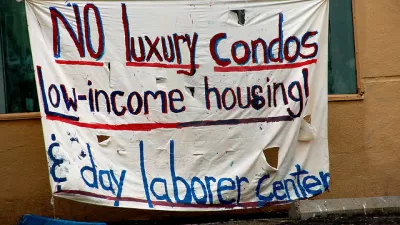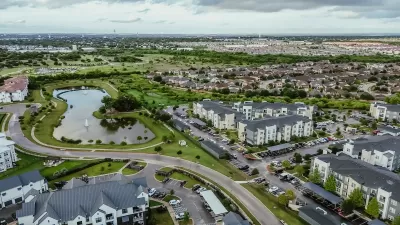New research shows that there is no overall shortage of housing units, but all U.S. metropolitan areas face a severe lack of affordable units for low-income renters.

A study from the University of Kansas reveals that the United States housing market doesn’t lack supply overall, but suffers from a dearth of affordable units for very low-income households in all of the nation’s markets.
The study “examined U.S. Census Bureau data from 2000 to 2020 to compare the number of households formed to the number of housing units added to determine if there were more households needing homes than units available.” According to the authors, “only four of the nation’s 381 metropolitan areas experienced a housing shortage in the study time frame, as did only 19 of the country’s 526 "micropolitan" areas — those with 10,000-50,000 residents.”
According to the authors, stemming the housing crisis requires that policymakers address low incomes and high housing costs, not just supply. The study found that “from 2000 to 2020, housing production exceeded the growth of households by 3.3 million units. The surplus from 2000 to 2010 more than offset the shortages from 2010 to 2020.” However, almost all metropolitan areas have a shortage of units available to the lowest-income renters.
The study shows that the vacancy rate at the end of 2020 was 9.7 percent, with almost 14 million units available. The authors note that “Of course, there are many factors that determine if a vacant is truly available; namely, if it is physically habitable and how much it costs to purchase or rent the unit.” Professor Kirk McClure adds, “There are also considerations over a family’s needs such as an adequate number of bedrooms or accessibility for individuals with disabilities, but the number of homes needed has not outpaced the number of homes available.”
The authors conclude, “Helping people afford the housing stock that is available would be more cost effective than expanding new home construction in the hope that additional supply would bring prices down.”
FULL STORY: Study finds US does not have housing shortage, but shortage of affordable housing

Alabama: Trump Terminates Settlements for Black Communities Harmed By Raw Sewage
Trump deemed the landmark civil rights agreement “illegal DEI and environmental justice policy.”

Planetizen Federal Action Tracker
A weekly monitor of how Trump’s orders and actions are impacting planners and planning in America.

The 120 Year Old Tiny Home Villages That Sheltered San Francisco’s Earthquake Refugees
More than a century ago, San Francisco mobilized to house thousands of residents displaced by the 1906 earthquake. Could their strategy offer a model for the present?

LA’s Tree Emergency Goes Beyond Vandalism
After a vandal destroyed dozens of downtown LA trees, Mayor Karen Bass vowed to replace them. Days later, she slashed the city’s tree budget.

Sacramento Leads Nation With Bus-Mounted Bike Lane Enforcement Cameras
The city is the first to use its bus-mounted traffic enforcement system to cite drivers who park or drive in bike lanes.

Seattle Voters Approve Social Housing Referendum
Voters approved a corporate tax to fund the city’s housing authority despite an opposition campaign funded by Amazon and Microsoft.
Urban Design for Planners 1: Software Tools
This six-course series explores essential urban design concepts using open source software and equips planners with the tools they need to participate fully in the urban design process.
Planning for Universal Design
Learn the tools for implementing Universal Design in planning regulations.
Ada County Highway District
Clanton & Associates, Inc.
Jessamine County Fiscal Court
Institute for Housing and Urban Development Studies (IHS)
City of Grandview
Harvard GSD Executive Education
Toledo-Lucas County Plan Commissions
Salt Lake City
NYU Wagner Graduate School of Public Service





























